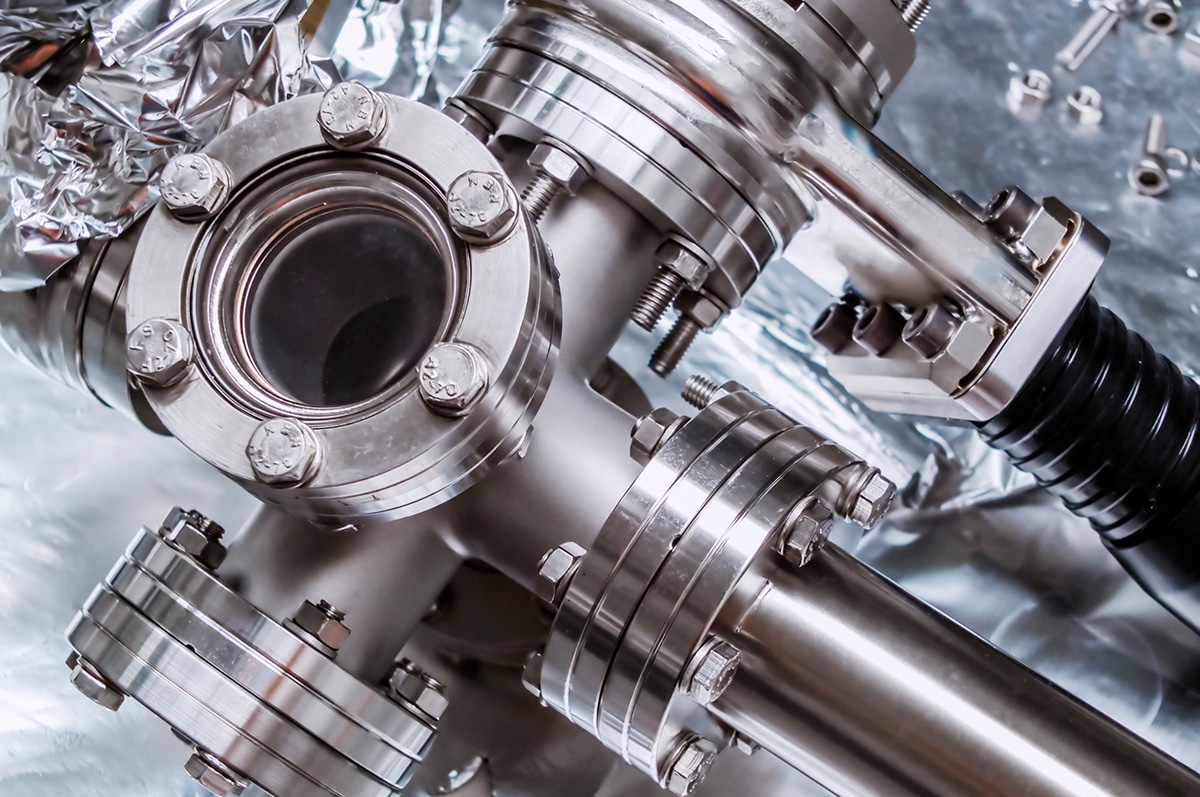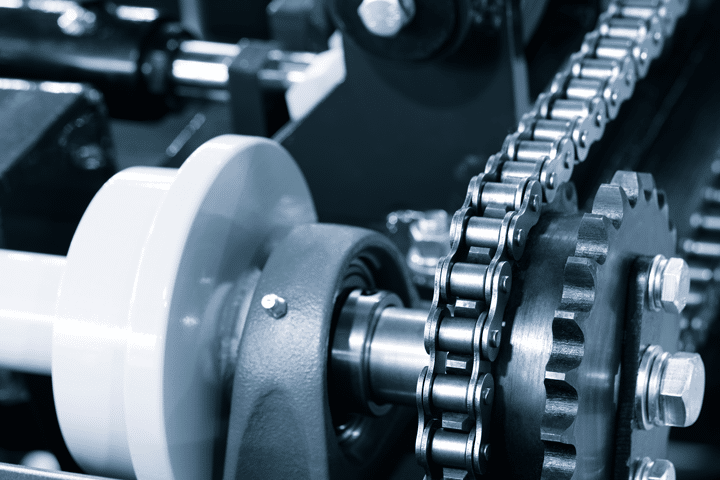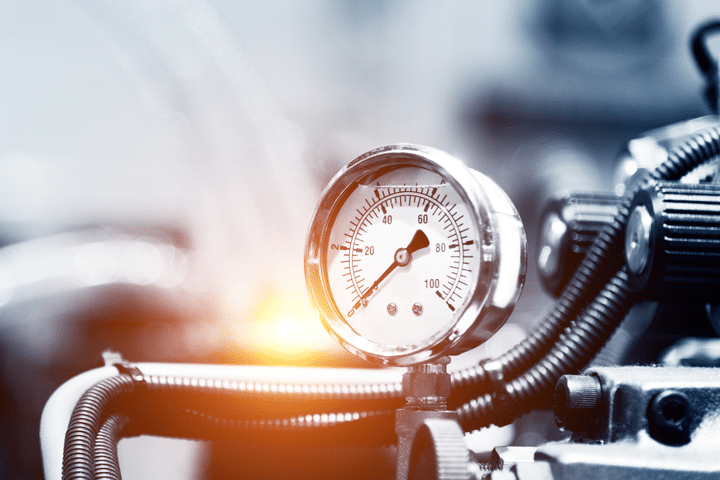Chemical manufacturing processes often use stainless steel as a material of construction due to its resistance to a broad range of chemicals and to corrosion. Stainless steel is one of the most commonly used metals in the chemical manufacturing industry today, and is used in a wide range of applications, such as reactors, valves, process piping, water systems, and more.
Many manufacturers of stainless steel valves, piping, and flanges typically sell to chemical plants through third parties. This indirect channel to their customers can pose risks in many cases, as they may not know in what environment their products may be used. Chemical compatibility is critical. As a result, stainless steel valves and other threaded components could come into contact with a wide variety of aggressive materials and harsh environments with which they are incompatible. One common issue, known as galling, occurs when two pieces of stainless steel come into contact with one another under pressure. Stainless steel valves and other threaded components could come in contact with a wide variety of aggressive materials and harsh environments with which they are incompatible. For example, chlorine, strong acids, caustics, and peroxides are incompatible with a wide variety of metals and stainless steel alloys.
What is Galling?
Galling is a term used to describe the seizing of two pieces of metal, effectively “cold-welding” or fusing them together. The pressure and friction created when two metal components come together cause the atoms at the surface of one piece to bind with the atoms at the surface of the other piece, locking them together, and preventing them from being separated in the future. This galling process can be made worse when these metal components are also placed in contact with an incompatible chemical. Galled stainless steel valves, piping, flanges, nuts and bolts, fasteners, and other threaded components will not easily separate, and may need to be cut or destroyed when repairs become necessary. For this reason, the galling of stainless steel components in chemical operations can contribute to significant operational and maintenance costs.
How Does Galling Threaten Other Applications and Industries?
Stainless steel is a commonly used material for valves and other components in anything from water systems to aerospace applications. In water environments, keeping the purity of the water and eliminating rust is crucial. Stainless steel provides water systems with the necessary strength to withstand high vibrations and high volumes of water. In aerospace applications, materials must be able to withstand uniquely harsh conditions, such as extreme fluctuations in temperature, pressures, ambient moisture, and chemical exposure. Once stainless steel parts are fused, the only way to separate them is to cut them, effectively destroying a fabricated component. This process is often costly and can even be dangerous, depending on the surrounding environments and conditions in which the cutting operation must be conducted. Additionally, in these applications, if the stainless steel pieces in close proximity become inseparable, they can compromise structural integrity, performance, and operational safety.
Halocarbon Greases and Oils: The Perfect Solution
With over 50 years of experience and usage, Halocarbon greases and oils remain the perfect solution to mitigate galling and “cold-welding” and protect a wide range of stainless steel alloys across a broad range of applications and for extended use. Our greases and oils are the preferred anti-galling agents for many major valve manufacturers, globally. The unique chemistry of Halocarbon lubricants creates a completely inert, non-reactive, and nonflammable barrier that protects the stainless steel parts from galling over time, even in the harshest chemical environments, and at extreme pressures.
More importantly, our greases and oils are chemically inert, and protect stainless steel components when they come in contact with a broad range of reactive gasses and harsh chemicals. This provides chemical manufacturers and the valve producers the peace of mind knowing that no matter where their products are going to be used, they will be safe and protected. Using Halocarbon oils and greases to lubricate valves, piping, flanges, nuts and bolts, fasteners, and other threaded components, allows for safer operations and protects employees that have to work in these hazardous environments.
From the corrosive and reactive environments of chemical manufacturing to industries such as water purification and treatment, Halocarbon oils and greases are the safe and effective choice when connecting two pieces of stainless steel together. In some of today’s most advanced water treatment facilities, Halocarbon greases and oils are critical in enabling stainless steel components to maintain the integrity and reliability required to maintain water flow, water purity, and minime rust and mineralization.
Additionally, Halocarbon greases and oils possess the ability to withstand temperatures as low as -100°C and as high as 300°C and still maintain their chemical properties, which makes them some of the most unique products on the market today. The lack of oxygen and hydrogen in the chemical composition of our oils differentiates them from typical hydrocarbons, silicones, and other fluorinated lubricants.
Halocarbon oils and greases have long shelf-lives and will not degrade over time. Our high-performance oils and greases continue as some of today’s most essential lubricating products for use in a broad range of stainless steel applications.
Halocarbon is dedicated to delivering high-quality, reliable greases and oils to provide ideal safety, performance, and longevity for a broad range of stainless steel applications. We ensure innovative chemical solutions for the most advanced manufacturing processes.
Are you looking to learn more about a specific product? Contact us today!






Leave a Reply